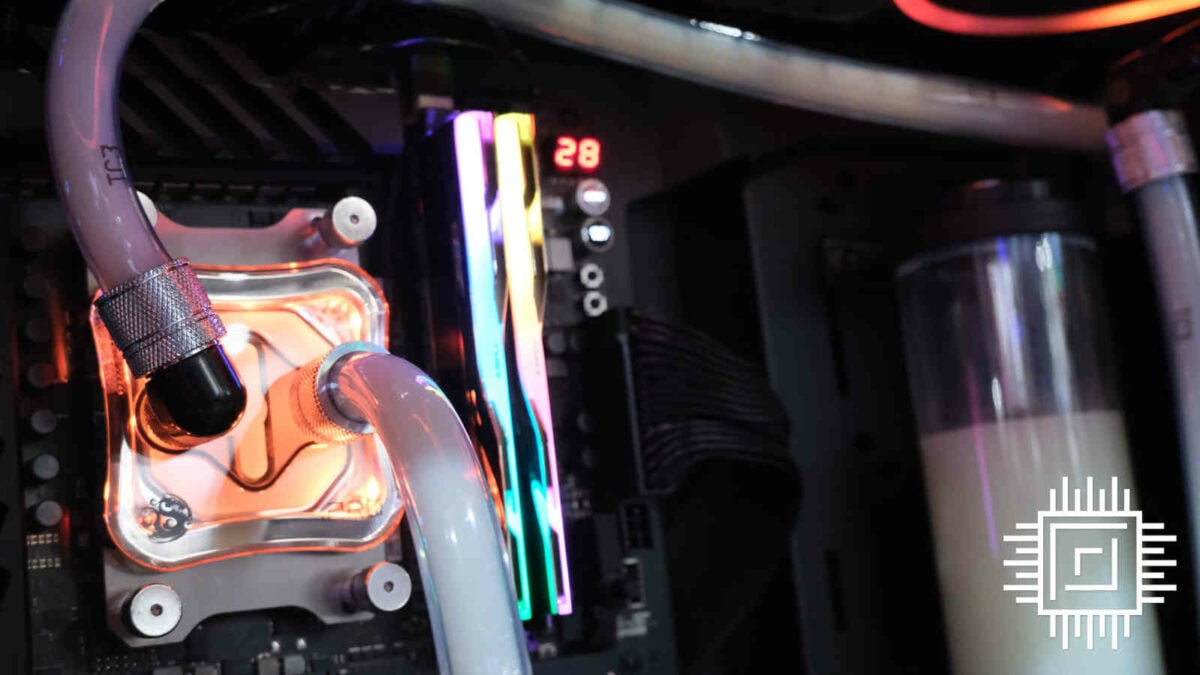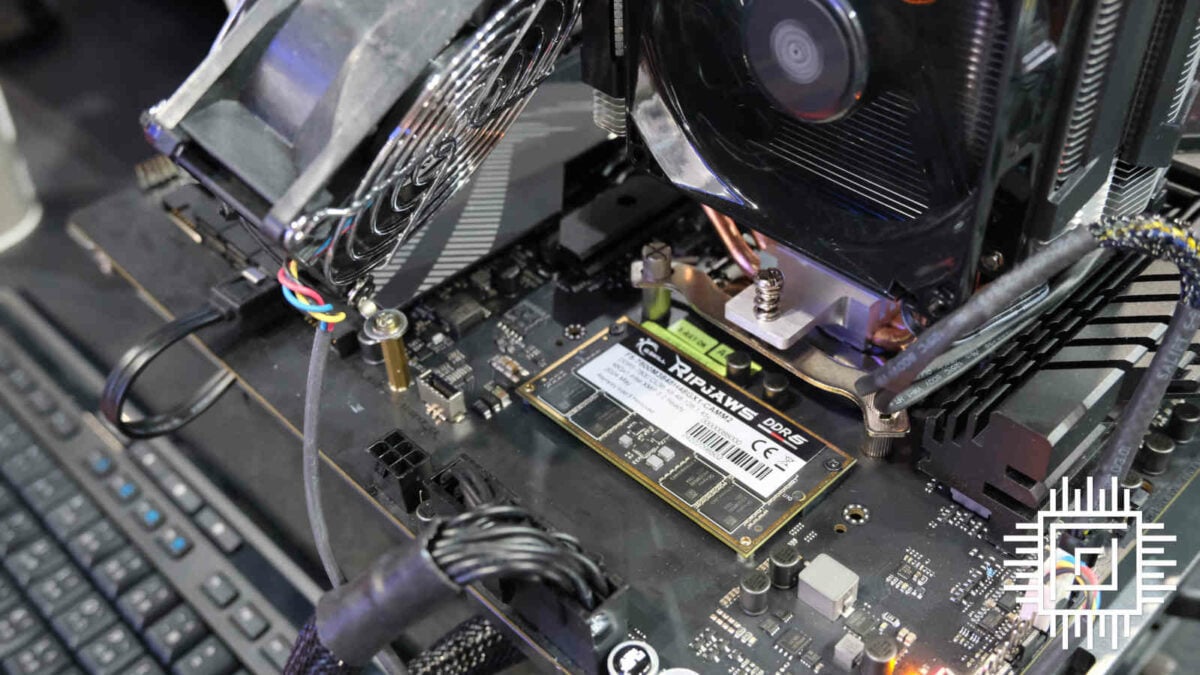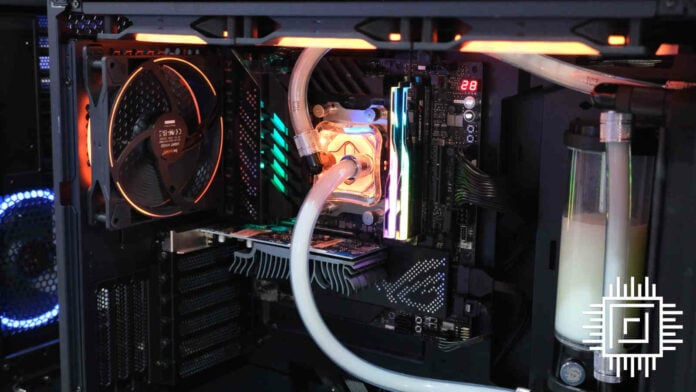G.Skill has unleashed the full potential of its UDIMM DDR5 memory surpassing the 10GT/s barrier. The brand has also shown off its next-gen CAMM2 modules offering impressive speeds and compact size.
G.Skill has opened the festivities with a groundbreaking 32GB (2x16GB) RAM kit reaching 10,600MT/s. This standard dual-channel DDR5 kit managed this speed at CL56-62-62-126 timings and an unknown voltage, probably at least 1.45V. But that’s not all; G.Skill managed to run this frequency on an AM5 system, powered by AMD’s Ryzen 5 8500G CPU (a processor that costs just $159 / £161 right now) and Asus’ ROG Crosshair X670E Gene motherboard. It seems that Intel is no longer the sole platform for high-speed memory support.

Meanwhile, though less exciting, the brand has also presented another fast kit, this time providing lower latency. To be more specific, this kit comprises two 24GB modules operating at 9,000MT/s and CL38-52-52-143 timings. A nice combo for those running software that benefits from both speed and latency. These should also be less demanding in the motherboard department, i.e. you may not need the best boards out there to reach their full potential.
Lastly, G.Skill has presented its DDR5 module using the CAMM2 format, rocking 7,800MT/s speed at CL38-48-48-128 timing and 1.45v. This memory module is also compatible with XMP 3.0, meaning you don’t need to bother with tuning to unlock its full power, just one click and you are good to go.

Like some of the recent DDR5 UDIMM RAM, this CAMM2 solution offers 48GB of capacity on a single module while being more compact in length and height. Cooling should also be better on these since they lay flat on the motherboard, allowing the installation of dedicated solutions such as heatsinks.
For its CAMM2 presentation, G.Skill used a concept board from Asus powered by an Intel Core i9-14900KF CPU and a Z790 chipset. This shows that, in addition to MSI, Asus also has working boards supporting CAMM2. Though we expect all manufacturers to release a couple of compatible boards, until then, these are the ones we know about.


